
Tech & Sci
14:28, 28-Sep-2018
How innovation in technology is changing the travel world
Updated
13:47, 01-Oct-2018
CGTN
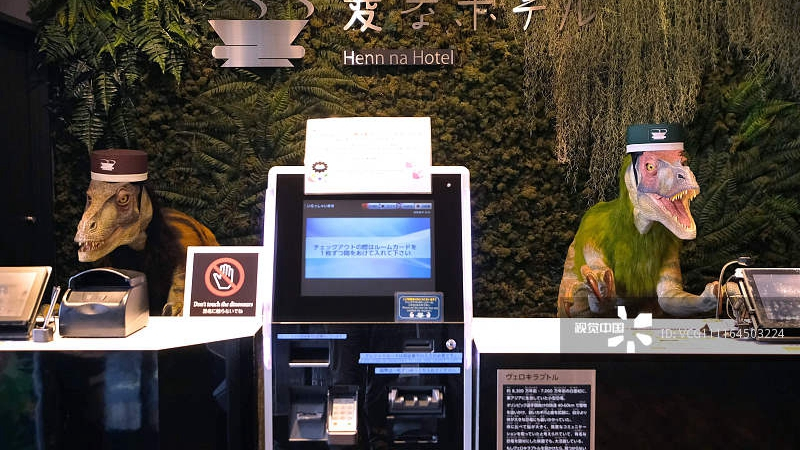
This year's World Tourism Day was themed "Tourism and the Digital Transformation" and focused on the importance of innovation and technology for preparing tourism sector for the future.
"Harnessing innovation and digital advances provides tourism with opportunities to improve inclusiveness," said Zurab Pololikashvili, Secretary-General of the World Tourism Organization (UNWTO) on Thursday, while urging the industry to harness the power of technology.
Today, digitization has left no segment of the travel ecosystem untouched.
In this "new age of smart tourism" more and more companies are adopting innovative technologies to deliver on customers' expectations, engaging with travelers from around the globe using various technologies at every step of their journey.
Here are some of the latest tech trends to look out for in 2019:
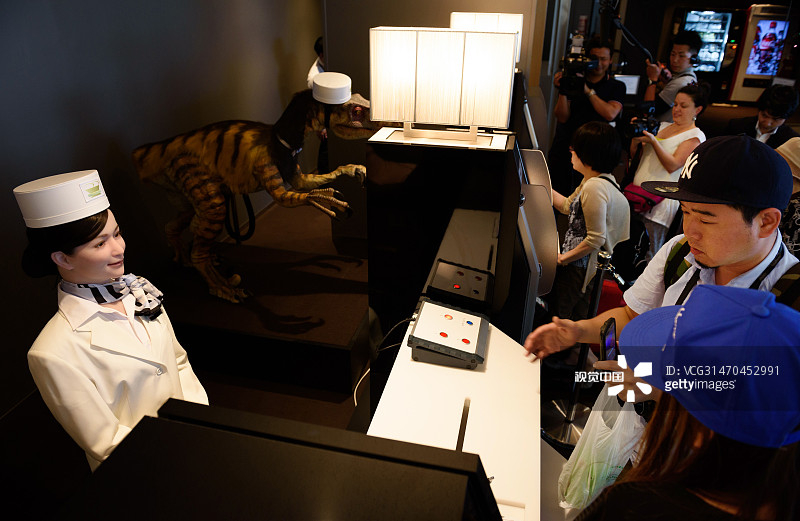
A humanoid robot managing the front desk at the Henn-na Hotel in Tokyo. / VCG Photo
A humanoid robot managing the front desk at the Henn-na Hotel in Tokyo. / VCG Photo
Artificial Intelligence (AI)
The ways in which AI helps the industry can be classified into three major categories: Machine Learning, ChatBots or TravelBots, and Robots.
ChatBots either provide automated customer service on a travel companies' websites or operate through messaging platforms such as Facebook Messenger to converse with a traveler and assist with booking travel.
And with time they continue to get smarter, instead of gathering tourism service information through users, AI bots work the other way round. They use machine to identify commonly used phraseology and search terms, speeding up the process as well as improving quality and performance and lowering costs.
Recently, Japan opened the world's first robot-run hotel. Henn-na Hotel, which means "strange," is a 72-room hotel that is staffed by 10 humans alongside 10 robots.
Internet of things (IoT)
IoT holds an immense potential in shaping the future of the travel industry and many travel companies are gradually getting to realize that.
Internet of Things (IoT) is a field where any device or object can be made smart and identifiable through radio frequency tags.
These devices can communicate with many other smart devices through the network. An example of an industry player using IoT to reduce anxiety and stress levels associated with lost bags is Lufthansa. Passengers can track their baggage via a link found on their mobile boarding pass in the Lufthansa app.
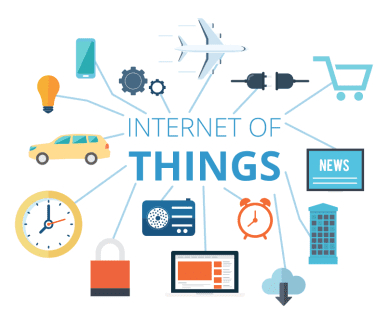
Wearable technology
Wearable devices are being designed to offer customers a more personalized travel experience. Wearables are no longer a straightforward concept that gadget lovers can sport under their collar.
These devices can become a mini-screen that performs many functions such as boarding pass reminders, reservation information, QR codes, real time location tracker, traffic updates and best routes for popular tourist spots.
For example, Disneyland has introduced a wearable, customizable, RFID-equipped MagicBand, which connects to the theme park infrastructure, to reduce waiting times and track guests' locations and activities.
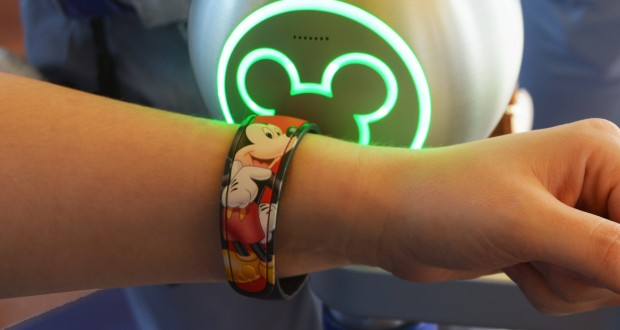
A visitor scanning a MagicBand at Disneyland in California, USA. (Image Courtesy: Disneyland)
A visitor scanning a MagicBand at Disneyland in California, USA. (Image Courtesy: Disneyland)
Virtual Reality (VR)
Also known as "Near reality," Virtual reality (VR) is an interactive computer-generated experience that takes place within a simulated environment. The immersive experience can be similar to the real world or it can be fantastical.
The technology is being used either for content marketing or to enhance the customers' experience.
Some travel companies have started using VR technology to give a virtual tour of the flight, hotel room in advance, in order to increase ticket or ancillary services sales.
Mobile tours can also be provided to the tourists giving details of all tourist attractions, local restaurants etc. and assisting them throughout their trip.
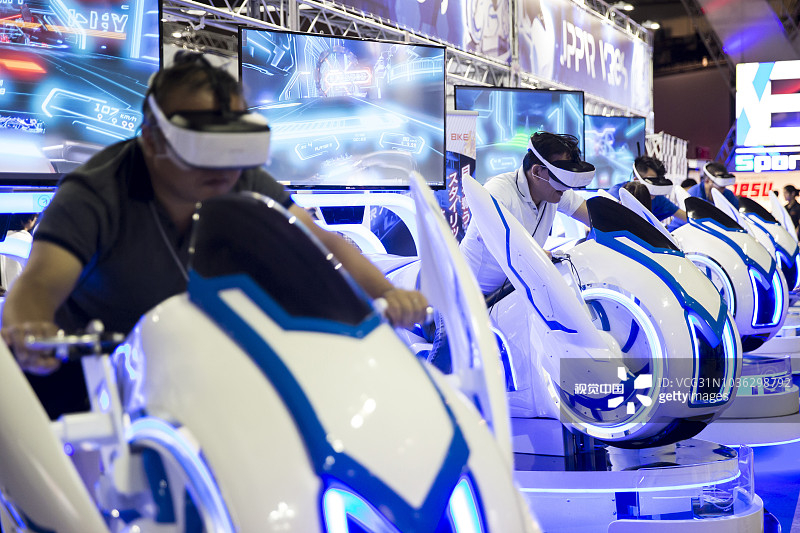
Attendees trying their hands on Photon Bike, a virtual reality attraction, at Tokyo Game Show , Tokyo, September 20, 2018./ VCG Photo
Attendees trying their hands on Photon Bike, a virtual reality attraction, at Tokyo Game Show , Tokyo, September 20, 2018./ VCG Photo
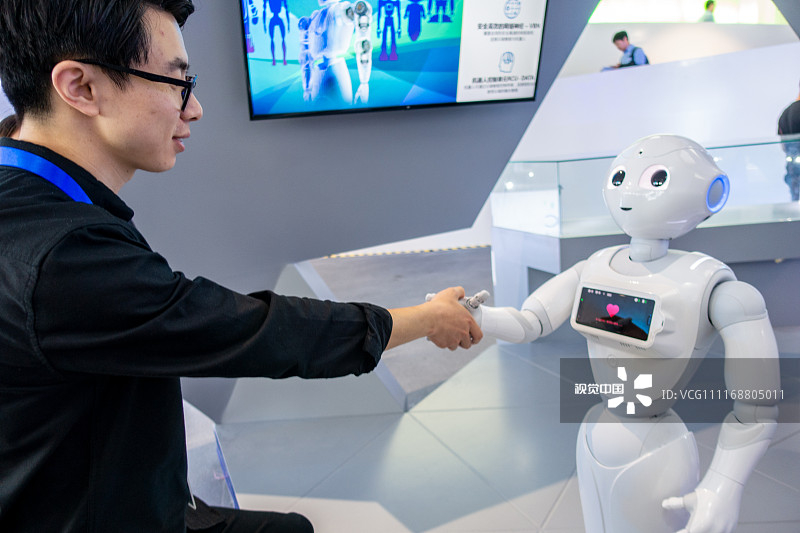
A "smart robot" shaking hands with a visitor at the 2018 World Artificial Intelligence Conference, Shanghai, China, September 21, 2018./ VCG Photo
A "smart robot" shaking hands with a visitor at the 2018 World Artificial Intelligence Conference, Shanghai, China, September 21, 2018./ VCG Photo
Voice enabled assistants
The hospitality industry is also undergoing several changes and hands-free communication is trending and thriving for the future to be your digital butler and provide you concierge services.
Some hotel companies in the US have moved quickly to introduce voice technology as an in-room amenity through smart speakers. Among them are: W Austin of Marriott International in Texas, Kimpton Alexis Hotel in Seattle, and Westin Buffalo in New York.
According to Allied Market Research, a US based market research firm, online tourism will generate nearly 1,091 billion US dollars globally by 2022.
So have you booked your next trip yet?
(Cover photo: A pair of robot dinosaurs wearing bellboy hats managing the front desk at the Henn-na Hotel in Tokyo. / VCG Photo)

SITEMAP
Copyright © 2018 CGTN. Beijing ICP prepared NO.16065310-3
Copyright © 2018 CGTN. Beijing ICP prepared NO.16065310-3